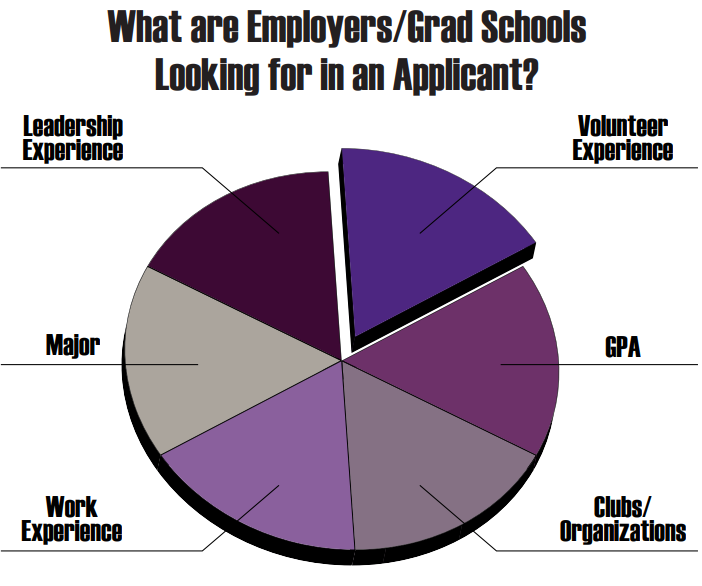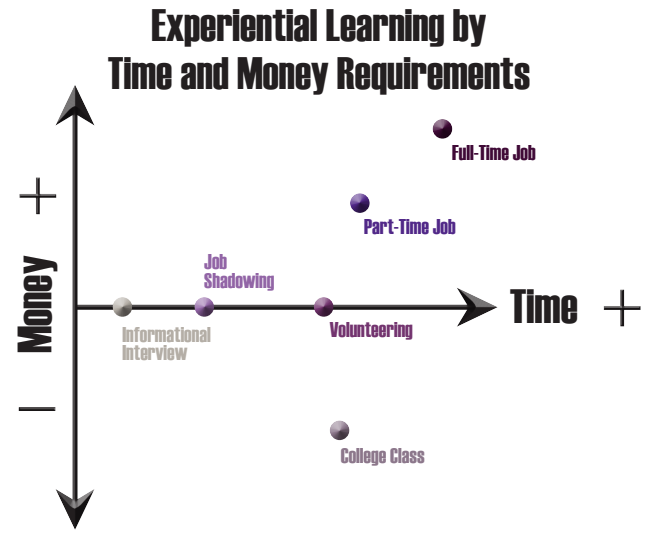Gain Experience
Gain Experience
Apply for part-time jobs and internships in your Handshake account.
There are a variety of ways to gain experiential knowledge in a career field. Below is a graph to help you quickly visualize the time and money demands for various methods of gaining experience and developing your potential. These methods can help you better understand an occupation and develop marketable skills that employers are looking for in job candidates.
Ask yourself, "How much time and money am I willing to dedicate to learning about this career?
If you have several careers to explore, think about choosing a less time-consuming option. If you’re looking for confirmation in one primary career field, a bigger time commitment will offer a more extensive understanding of that occupation. If money is a major concern for you, think about options that cost less or can help you earn money.

What areas do you excel?
What areas do you want to work on, and how will you do it?
Track your campus involvement and career development activities to earn rewards through KSU's Cat Trax program!
NACE Career Readiness Competencies
Have you ever wondered what competencies employers are looking for in job candidates? The National Association of Colleges and Employers (2021) surveyed employers to find out what makes college students "career ready". Below are the 8 core competencies that you will want to develop during your college experience to stand out in applicant pools.
